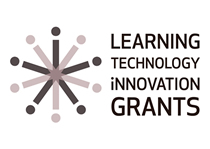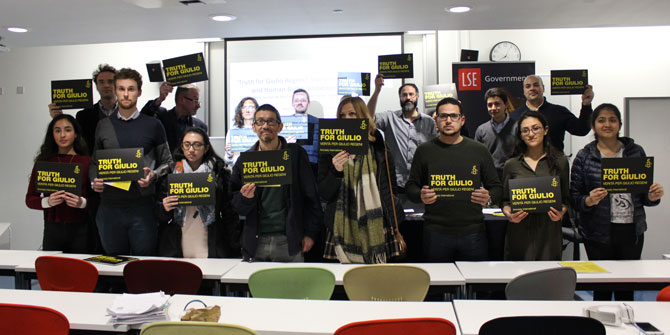In a first for the LSE, Professor Francisco Panizza from the LSE Department of Government and Professor Anthony Spanakos from Montclair State University co-taught an experimental, long-distance, virtual course during Michaelmas Term, with funding from the LSE Learning Technology and Innovation grant scheme. Professor Panizza tells us more about the project and the immense potential of the ‘virtual classroom’ environment.
There are many courses running at LSE each term, but this Michaelmas Term I was able to co-teach a course with a difference, alongside Professor Anthony Spanakos from Montclair State University in New Jersey. The course on the politics and policies of the BRICS (Brazil, Russia, India, China and South Africa) brought together around 30 students from both universities in a ‘virtual classroom’. The LSE students, second and third year undergraduates from the departments of Government and International Relations, were all volunteers. Whilst they didn’t gain any credits for joining the course, it was a really interesting experience and I think everyone who took part learned a lot.
Although we now live in a ‘global village’ and there are many commonalities between the US and British university systems, there were practical differences that needed to be ironed out. For instance, the US academic year runs on semesters and classes at Montclair State University started four weeks earlier than at LSE. As a result, the US students gained and extra holiday during LSE reading week and in exchange our students got a day off on the Friday after Thanksgiving Thursday, a de facto holiday in America.
On the technical side there were also challenges to overcome. The LSE does not currently have a dedicated classroom with the communications equipment we required for the course. This meant carrying the equipment from the Learning Teaching and Innovation (LTI) office in Aldwych to our classroom in Lincoln’s Inn Fields each week to set it up, with the help of two highly professional LTI Learning Technologists. Another lesson we learned was that all technology is only as good as its weakest link. The LTI grant funding enabled the course organiser to buy a high quality camera, but without professional lighting or high tech projectors images of both classrooms weren’t as clear as we would’ve liked and it was sometimes difficult to identify and listen to students sat at the back of the classroom (students seem to gravitate towards the back of any classroom, virtual or not).
In spite of the inevitable teething problems, there were many, many, positives. Guest lectures from other universities were able to join the course. One of them was Professor Lucius Botes, from the University of the Free State in South Africa, which meant that our virtual classroom extended across three different continents and three different time zones. Perhaps the peak of the course was the last week, when students ran a ‘BRICS summit’, in which they assumed the representation of the different countries and drafted documents on foreign affairs, the economy, defence and a joint BRICS declaration. If only they ran the real summit, the world would be a better place.
Ultimately, I think we only scratched the surface of a teaching experience full of possibilities. Imagine being able to run a course together with the best specialists in the world, in a virtual classroom with images of HD quality! There is undoubtedly a need to develop new teaching methods and forms of student participation that take full advantage of new communication technologies. There are several new buildings being constructed at the LSE, and hopefully these should include state of the art technology and teaching spaces that will make ‘virtual classrooms’ a permanent fixture in University teaching.
 Are you considering using technology in your teaching and learning practice?
Are you considering using technology in your teaching and learning practice?
The LTI’s Learning Technology and Innovation Grants enable LSE departments to explore the use of new technologies in teaching and learning. Individual and team applications from both academics and students are welcome, and the LTI will support you throughout your project whether you’re tech-savvy or not.
Go to the LTI blog for more information, ideas and advice.
The current round of applications closes on 15 January 2016.
 Francisco Panizza is Professor in Latin American and Comparative Politics in the LSE Department of Government.
Francisco Panizza is Professor in Latin American and Comparative Politics in the LSE Department of Government.






